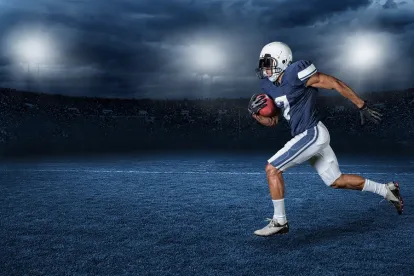Richard Griffin, the general counsel for the National Labor Relations Board (NLRB) until later this year, sent a memo on January 31, 2017 to the NLRB’s regional directors stating that Football Bowl Subdivision (FBS) football players are “employees” under the National Labor Relations Act (NLRA) because “they perform services for their college and the NCAA, subject to their control, in return for compensation.”
As the NLRB’s general counsel, Griffin calls the plays and sets the prosecutorial game plan under the NLRA. His newly issued playbook encourages the regional directors to investigate, prosecute and to, where appropriate, throw the penalty flag against private colleges that violate the newfound rights of college football players under NLRA. The memo opens the door for labor complaints by or on behalf of football players at the seventeen FBS private universities.
Griffin detailed how schools maintain control over scholarship football players in ways that closely resemble an employment relationship:
-
Daily itineraries that regulate players’ hourly tasks.
-
Players need to retain certain grades while football activities interfere with classes.
-
Coaches can penalize players, “including firing them from the football team resulting in the loss of their scholarships.”
-
Football players are required to seek permission before living off campus, applying for outside employment, driving personal vehicles, traveling off campus and posting items on the internet.
Griffin found additional support for finding an employment relationship in a 2016 NCAA study stating that football players report a median of 42 hours per week on football-related activities during football season.
In 2015, the NLRB ruled that Northwestern University players could not unionize because doing so would create chaos for public and private universities. The board did not, however, directly address whether the players were employees with rights protected under the NLRA.
Griffin did not hesitate to address that question: “Scholarship football players should be protected when they act concertedly to speak out about aspects of their terms and conditions of employment.” Griffin continued, “This includes, for example, any actions to: advocate for greater protections against concussive head trauma and unsafe practice methods, reform NCAA rules so that football players can share in the profit derived from their talents, or self-organize, regardless of whether the Board ultimately certifies the bargaining unit.”
It remains to be seen whether the Board, its judges or the Courts will support Griffin’s position. Griffin’s four-year term as general counsel ends in November 2017, when he will likely become a free agent. His replacement may have a completely different playbook, but the game is getting more interesting as the play clock winds down. Stay tuned…


 />i
/>i

